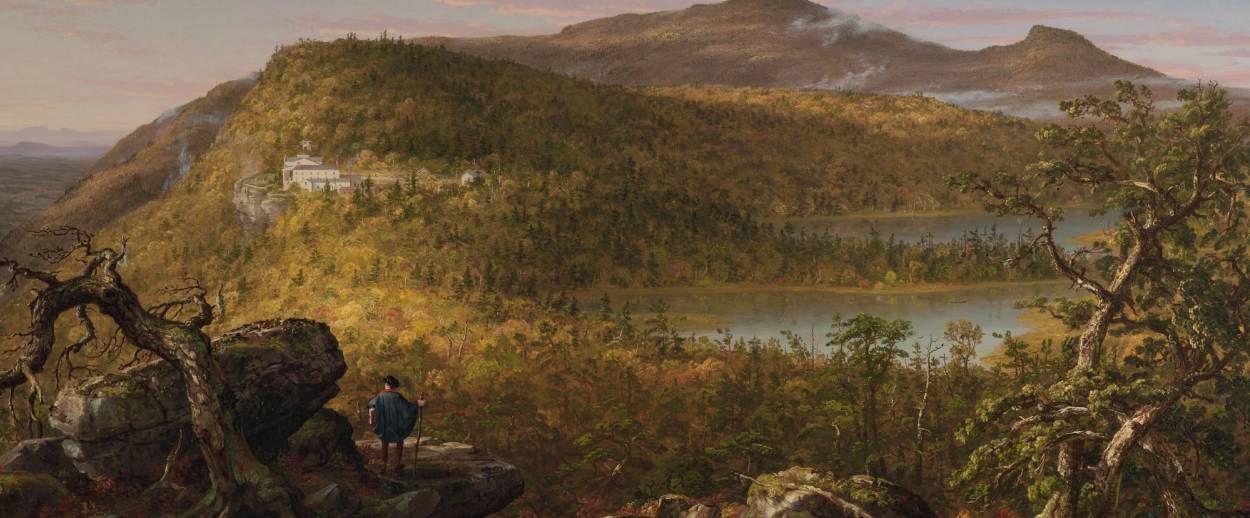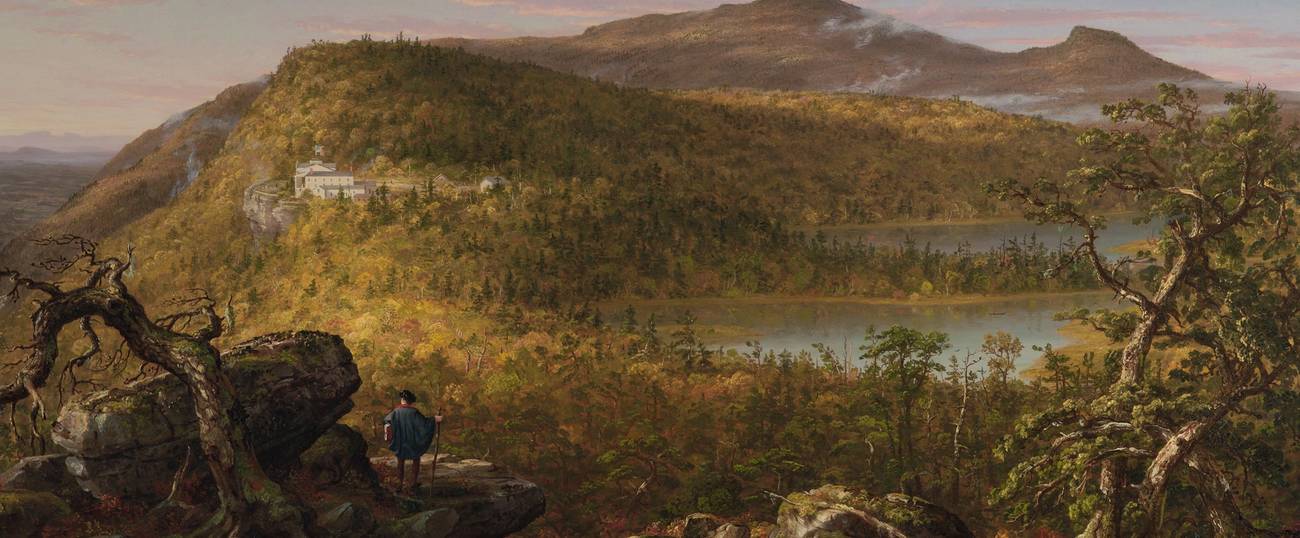A Hudson River Eclogue
What’s better than ‘a few days in an American October’?




In the summer of 1855 Nathaniel Hawthorne toured London and, feeling a burst of enthusiasm for everything English, wrote in his English Note-Books: “It was a most beautiful sunny day, the very perfection of English weather—which is as much as to say, the best weather in the world, except, perhaps, a few days in an American October.” Hawthorne had never been much of a traveler, and, at that moment in his life, England and Wales were the only countries he had ever seen, outside of the northeastern United States. Even so, he had good reason to judge English weather to be better than all other weathers, and that is because enthusiasm is a superlative. It allows for no gradations. To love is to love absolutely. Still, I happen to be reading the English Note-Books on a bench in a capacious backyard in the delightful Hudson River village of Kinderhook in late October, which I take to be the very perfection of an American October. And I see that Hawthorne was right to reserve an exceptional place for the American few days, which are better than in any other country, or, I should add, planet.
It is not merely because of the colors. The scents and odors are a balm. You do not walk amid such odors. Sweetness is buoyant. You float. There appear to be no breezes, and yet the odors waft about, now fresher, now more pungent, according to exhalations of the trees. Or maybe there is, after all, a feeble breeze, to judge from the wavering of the top-most leaves. The colors, too, waver. The color-field artists used to paint huge canvases in which different shades placed next to one another appear to vibrate, and I am guessing the artists picked up the idea of color vibrations from the yellows and greens and orange hues of the October leaves, which appear to be in chaotic motion, even when they are entirely still.
On days like these, whenever my thoughts turn to political questions, I find myself wondering if American isolationism isn’t the soul of sanity. Since our Octobers are perfect, why should we trouble ourselves about anything else? I spent an hour of the morning at the village bagel shop with the New York Times, which reminded me of sorrows across half the world. A large number of Palestinians have gone mad, and a few Israelis, too, and Benjamin Netanyahu has just made an intelligent comment about 20th-century history, except that he has bungled the comment by exaggerating one point, which has brought down upon his head a world of condemnation. This is the sort of thing that ought normally to stir in me my political instinct, which is the urge to correct—to rebuke the prime minister and his critics and his enemies. But I cannot be bothered. It is irresponsible of me. The world will have to make do unrebuked. It is the fault of the aromatic respirations and the vibrations of green. Then, too, I am observing a physiological impossibility. The lawn is covered with fallen leaves, but no leaves are falling from the trees. Oh, perhaps one or two leaves descend, fluttering like butterflies. Mostly the leaves are in no mood to fall. The leaves on the lawn seem, instead, to be rising.
One of the delights of the lawn is a scattering of classical statues, which I take to be gods. Here is a bust of a noble Indian, broad-cheeked and big-nosed, perhaps a Mohican sachem, as is proper for the Kinderhook wilderness, where Mohicans used to roam. There are Roman deities, who seem to me amorous. Here are the rustic lads and lasses whom I remember from Horace’s poems. Horace is tender on the circumstances of older masculinity, whose exterior reveals age and whose interior disputes age. Horace yearns; he is rueful. His eyebrow lifts at a flirty girl. He looses his creatures across the fields, and creatures have likewise been loosed across the lawn before me. Pan on a pedestal is bedecked with grapes in sufficient quantities to have caused him to forget his flute. At his side a demure maiden gazes chastely at the lawn, oblivious to the god and the grapes; but Horace could tell us that, sooner or later, her chastity is doomed.
I expect one of Hawthorne’s mythic creatures to come ambling past, or some unknown Indian god or Roman shepherd. But no one has stirred. A church bell tolls. Dong! dong! Two o’clock. It wakes me up. I am recalled to duty. It is a shame. I stand up and stroll back to the house, making sure to pass a Roman maiden who is preparing to fill her vase at a fountain, in case she should throw me a look. Dear readers, forgive my absence from duty, but please recall that the world has passed just now through an entire October noontime without receiving a single one of my journalistic rebukes or corrections and, even so, is no worse than would otherwise have been the case. And here is another leaf, twittering on insect wings in the course of its descent.
***
You can help support Tablet’s unique brand of Jewish journalism. Click here to donate today.
Paul Berman is Tablet’s critic-at-large. He is the author of A Tale of Two Utopias, Terror and Liberalism, Power and the Idealists, and The Flight of the Intellectuals.